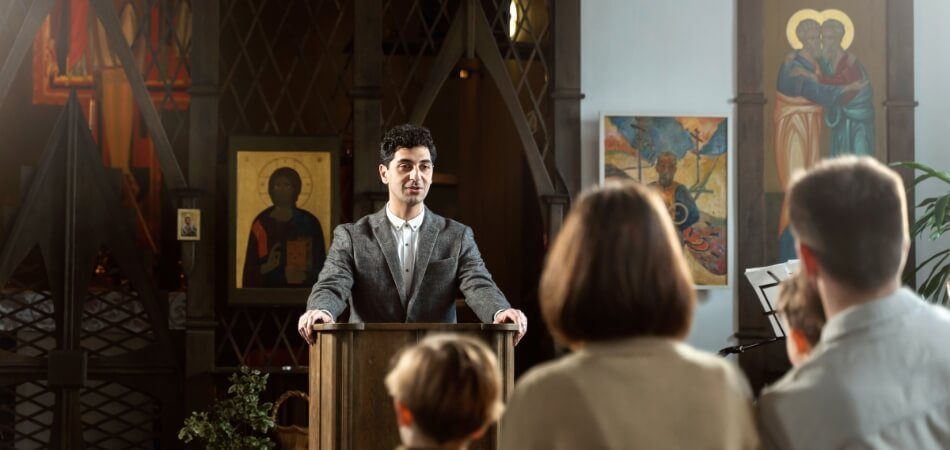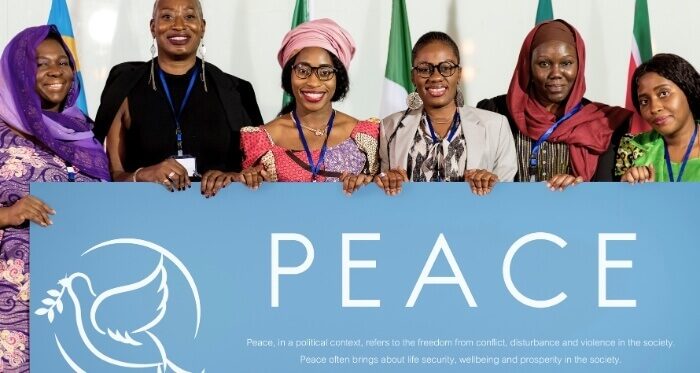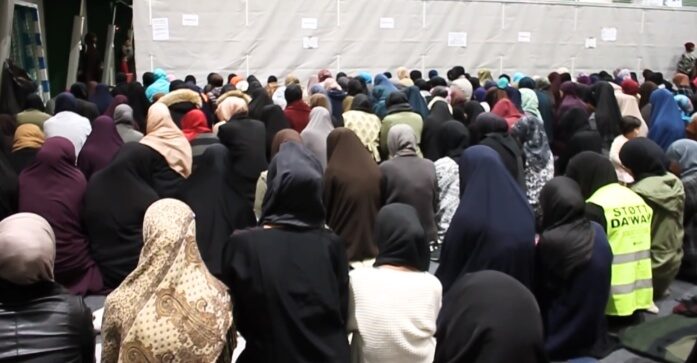As our world grows increasingly interconnected, understanding the role of religion in fostering global peace becomes paramount. At the heart of this exploration stands the upcoming Religious Studies and Peace Conference, an unprecedented event promising insightful dialogues and meaningful debates. Now, many might wonder what to expect from the Religious Studies and Peace Conference.
You can anticipate a groundbreaking forum where scholars, clerics, and enthusiasts from various faith backgrounds will converge. They will unravel the complexities at the crossroads of religion and peace, delving into perspectives on spiritual doctrines, practical conflict resolution, and the delicate art of cultivating harmony amid religious diversity.
This conference is not just an academic gathering but a beacon of hope, illuminating the pathways through which faith can coexist, dialogues can thrive, and a more peaceful world can emerge.
What is the Religious Studies and Peace Conference?
Bridging divides and fostering understanding, the Religious Studies and Peace Conference emerges as a pivotal gathering. It represents a collective journey towards harmony in a world often fragmented by differences. Here, dialogue creates bridges where walls once stood.
The conference is a haven for thought leaders, scholars, and peace advocates. They unite to dissect, discuss, and understand religion’s multifaceted role in conflict and reconciliation. Insights gleaned aim to forge peace, transcending individual beliefs for collective welfare.
In this transformative space, attendees delve into the heart of religious teachings. Emphasizing core peace-promoting tenets, they explore universal threads that bind different faiths. The goal is clear: harmonious coexistence through shared understanding and respect.
What to Expect from the Religious Studies and Peace Conference?
Religious Studies and Peace conferences serve as critical junctions for scholars, religious leaders, and peace activists to engage in profound discussions, share insights, and challenge traditional viewpoints. Here is what to expect from the Religious Studies and Peace Conferences:
Diverse Perspectives
Attendees can expect to be immersed in a variety of viewpoints reflecting the global landscape of religion and spirituality. Representatives from different faith backgrounds provide insights into their doctrines, shedding light on commonalities and shared values that can be foundations for peace.
Conflict Resolution Strategies
These conferences often feature case studies and analytical discussions about past and present conflicts influenced by religious aspects. Experts might explore strategies that have helped resolve such conflicts, emphasizing how religious understanding or interfaith mediation can play crucial roles in peacekeeping and conflict resolution.
Networking Opportunities
For professionals in the fields of religious studies, diplomacy, and peacekeeping, these events are invaluable for networking. Opportunities abound for establishing collaborative relationships, engaging in peer discussions, and connecting with thought leaders, which can be instrumental for future partnerships and initiatives.
Educational Resources
These conferences are usually rich with educational materials, workshops, and seminars. They can help attendees deepen their understanding of various religions and the role these belief systems can play in fostering peace. This aspect is particularly beneficial for educators, students, and community leaders looking to expand their knowledge and resources.
Actionable Insights for Harmony
Beyond theoretical discussions, a primary goal of these conferences is often to equip attendees with practical, actionable insights. These can be applied in communities worldwide to promote religious tolerance, mutual respect, and peaceful coexistence. Workshops might focus on practical skill-building for mediation, communication, and community outreach.
Future Trends and Technology
Some conferences may also delve into how technology and future trends impact religion and peace. Discussions might explore how social media, virtual reality, or broader technological advancements are reshaping the interfaith dialogue landscape, offering new challenges and opportunities for peacebuilding.
Religious Studies and Peace Conferences are holistic events that encourage a deeper understanding of the world’s religious frameworks and their intrinsic links to global peace efforts. Attendees leave with not just theoretical knowledge but also practical strategies to contribute positively to peacebuilding in their communities and broader spheres of influence.
How to Find the Right Religious Studies and Peace Conference?
Religious Studies and Peace Conferences serve as platforms for dialogue, understanding, and transformation. Selecting the right conference is crucial for individuals passionate about these interdisciplinary fields. A systematic approach ensures a valuable, enlightening experience.
Step-1. Identify Your Objectives
Begin by clarifying your goals for attending such a conference. Are you seeking professional development, academic enrichment, networking opportunities, or participation in peace initiatives? Understanding your objectives will guide your search and decision-making process.
Step-2. Research Various Conferences
Conduct thorough research into available conferences globally. Consider aspects like the themes, keynote speakers, workshop topics, and the backgrounds of attendees. Choose a conference whose focus aligns with your interests and objectives.
Step-3. Check Reputation and Reviews
Investigate the reputation of the organizers and the conference itself. Look for reviews or testimonials from previous attendees, focusing on the quality of content, diversity of perspectives presented, and opportunities for meaningful engagement.
Step-4. Consider Logistical Factors
Evaluate the logistical elements of attending. These include the conference location, travel requirements, accommodation options, and costs involved. Ensure the event is feasible in terms of your budget and time.
Step-5. Review the Agenda
Examine the conference agenda in detail. Assess the relevance of the sessions, workshops, and panel discussions. Confirm that the content resonates with your professional or personal aspirations in the realm of religious studies and peace.
Step-6. Inquire About Networking Opportunities
Networking is a pivotal component of these conferences. Inquire in advance about opportunities for interaction with speakers, panelists, and other attendees. Check if the conference schedule includes dedicated slots for networking.
Step- Registration and Preparation
Once satisfied, proceed with the registration. Afterward, prepare by reading relevant material, formulating questions, or identifying key individuals you wish to interact with. This step ensures you are well-prepared to engage profoundly and constructively.
Choosing the right Religious Studies and Peace Conference requires introspection, research, and planning. The effort put into this process is a precursor to a potentially life-changing experience, fostering personal growth and contributing to global peace dialogues.
Benefits of Attending the Religious Studies and Peace Conference
Understanding religion’s role in peace is more crucial than ever. The Religious Studies and Peace Conference offers a unique confluence of learning, dialogue, and growth. It’s a transformative experience, both personally and professionally.
Expanding Knowledge and Perspectives
The conference is a knowledge hub, offering access to groundbreaking research and theories. Experts from various fields share invaluable insights and analyses. This diversity of thought challenges and expands attendees’ perspectives.
Professional Development and Networking
Attendees meet professionals and academics from around the globe. These interactions can lead to collaborative opportunities and career advancements. Building a network with like-minded individuals often yields long-term professional benefits.
Enhancing Cultural Competence
Exposure to diverse cultures and beliefs is a significant conference advantage. It cultivates sensitivity towards global religious and cultural nuances. This understanding is essential in various professional and social contexts.
Direct Engagement with Experts
The conference allows direct interaction with thought leaders and innovators. Participants engage in meaningful dialogues, asking questions and seeking advice. This direct engagement is rare, valuable, and inspirational.
Contributing to Global Peace Efforts
Attendees become part of a larger movement toward global harmony. They gain insights into practical peacebuilding measures. This empowerment enables them to contribute effectively to societal peace efforts.
The benefits gained here, both subtle and monumental, resonate beyond the conference walls, inspiring continued learning and influencing peace efforts on both local and global stages. Each participant emerges equipped not only with enhanced knowledge but with a renewed commitment to be an ambassador for peace in a world that needs it more than ever.
Tips to Make the Most Out of a Religious Studies and Peace Conference
The best way to maximize the experience of a Religious Studies and Peace Conference is to plan strategically. These events are rich in knowledge, diversity, and opportunity. To fully benefit, attendees must approach them with intentionality and openness.
- Set Clear Objectives: Define what you want to achieve: new knowledge, networking, or skill enhancement. Tailor your conference itinerary to meet these specific goals efficiently.
- Research Participants and Speakers: Know the background of speakers and organizations involved. This insight helps in prioritizing sessions and identifying valuable networking opportunities.
- Active Participation: Engage actively by asking questions, participating in workshops, and contributing to discussions. It enhances learning and makes your presence more memorable.
- Network Effectively: Approach networking with a strategy, seeking meaningful connections rather than collecting contacts. Quality interactions will lead to more productive outcomes post-conference.
- Social Media Engagement: Use social media platforms to share insights and connect with participants. It helps maintain relationships and keeps the conversation going even after the event.
- Take Detailed Notes: Documenting sessions provide a reference point for future reflection. These notes are invaluable for retaining and revisiting learned concepts.
- Balance Your Schedule: While being proactive, ensure you don’t overextend yourself. Balance between sessions, networking, and personal downtime is crucial for a wholesome experience.
- Follow-up: Post-conference, reach out to new contacts and follow up on potential opportunities. It reinforces connections and lays the foundation for future collaboration.
- Reflect and Apply: Post-event, reflect on your experiences, insights gained, and potential applications. Consider how you can incorporate this knowledge into your personal and professional life.
Extracting the full value from a Religious Studies and Peace Conference demands more than just attendance; it requires a proactive, engaged approach before, during, and after the event. These conferences are springboards for growth, inspiration, and change.
Final Words
Embracing the opportunity presented by a Religious Studies and Peace Conference marks the beginning of a deeper journey into understanding humanity’s tapestry of faith and ideals.
For those pondering what to expect from the religious studies and peace conference, it promises a holistic educational and transformative experience. It bridges gaps between diverse religious practices, offering fresh perspectives on peace as a universal aspiration.
Beyond the intellectual enrichment, these gatherings serve as catalysts, inspiring attendees to become active contributors to a more tolerant and peaceful global society. The shared wisdom, cultural empathy, and innovative peacebuilding strategies highlighted are not just lessons but tools, empowering individuals to weave peace into the world’s complex social and cultural fabric.








